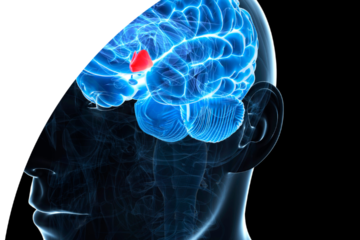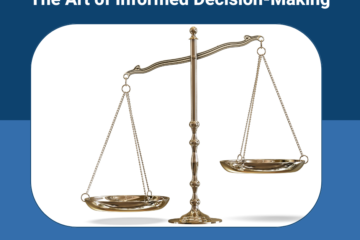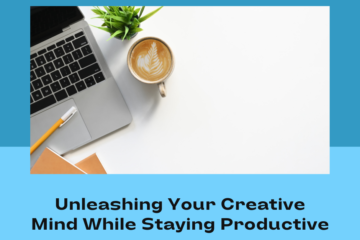
Introduction:
In today’s world, which is always changing, people often talk about skills that are important for the 21st century. The list is long and includes both academic skills and emotional intelligence. But let’s focus on what may be the most important skill of all: Adaptability—the ability to change. Why is being able to change so important, and how can you get better at it? This blog post will break down this important skill.
Why Adaptability Tops the Charts
Adaptability: Your Life’s Swiss Army Knife
Think of flexibility as a tool that can do everything, like a Swiss Army knife. Just like this small tool has different uses for different situations, adaptability helps you deal with the unexpected things that happen in life. It makes you stronger, more resourceful, and, in the end, more effective. It’s not just about staying alive; it’s also about succeeding in different places and situations.
The Work Landscape: Navigating an Ocean of Change
The job market in the 21st century is like a swirling ocean with waves of globalization, currents of technological progress, and storms of social and political change. In this always-changing world, it’s not enough to be a good swimmer; you also need to be able to adapt.
For example, robotics and artificial intelligence (AI) are quickly changing the way work is done. In a few years, your present job role could look very different or even go away. Adaptability lets you improve your skills, learn new ones, and switch directions easily. This gives you the strength you need to not only keep your head above water, but also ride the waves of change. Because of this, many job managers now put adaptability at the top of their list of must-have skills when judging candidates.
Personal Relationships: The Fabric of Social Adaptability
Your ties make up your social life, and your ability to change is the thread that can either make it stronger or weaker. Think about how you treat your family, friends, and love partners. Everyone has their own way of communicating, their own mental needs, and their own limits.
Being adaptable doesn’t mean giving up your identity or your values. Instead, it means changing how you act in different settings so that everyone can get along. This is very important in the connected world we live in now, where people often have relationships with people from different countries, backgrounds, and generations. For example, you might need to use different ways to talk to a child or an older person than you would to talk to your partner about a problem. Your ability to change helps make sure that every contact is not only useful but also polite.
Crisis Management: Your Shield and Sword

Life is full of surprises. We may have to deal with natural disasters, cash problems, or personal emergencies at some point. In this case, being able to change is both a shield and a sword. It teaches you how to stay calm under pressure, think critically, and make well-informed decisions, which can save your life in an emergency.
For example, during the COVID-19 pandemic, people who quickly adjusted to remote work, online networking, and digital change were better able to handle the economic turmoil. It’s not just about how well you can deal with practical problems, like moving to a home office, but also how well you can deal with emotional changes, like keeping a level head in stressful situations.
In the end, flexibility isn’t just a skill; it’s a set of skills that affects every part of your life. It is the foundation for personal growth, career success, and emotional well-being.
How to Become the Master of Adaptability
Adaptability isn’t just something you’re born with; it’s a skill, and like any other skill, you can get better at it. To be adaptable, you have to learn how to handle different scenarios and deal with changes in a positive way. Here are some things you can do to get better at this important skill.
Cultivate a Growth Mindset: Your Inner Compass
A growth mindset is like having an inner compass that points you toward growth possibilities. With a growth attitude, you stop saying “I can’t” and start saying “I can’t yet, but I will learn.” When you see problems as chances to grow, it will be easier for you to adapt to new situations. This way of thinking helps you accept problems and deal with them well, learning important lessons along the way.
To cultivate a growth mindset, focus on:
Recognizing ideas that hold you back.
Putting these views to the test and replacing them with more positive and helpful ideas.
Instead of seeing losses as failures, we should celebrate small wins and learn from them.
Enhancing Emotional Intelligence: Your Social GPS
Emotional intelligence is the ability to understand and control your own feelings and to get along well with other people. It is a key part of flexibility because knowing how you feel can help you decide what to do and how to act in different situations. For example, if you can figure out that a new change at work makes you feel threatened, you can take steps to deal with this feeling instead of letting it get in the way of your ability to adapt.
To enhance your emotional intelligence:
By practicing awareness, you can become more aware of how you feel.
Ask other people what they think about how your feelings affect how you act.
Listen to and understand the feelings of the people around you to build empathy.
Be Open to Feedback: Your Roadmap to Adaptation

Feedback, both good and bad, is like a road map that shows you how to become more flexible. It can help you figure out where you’re good and where you might need to work on things. It’s important to listen to feedback, because if you don’t, you might get stuck in your ways.
To be more open to feedback:
Instead of waiting for feedback to come to you, go out of your way to get it.
Listen without being guarded, and if you need more information, ask questions.
Take steps to act on the feedback you’ve gotten.
Take the Plunge: The Laboratory of Life
Lastly, the best way to become flexible is to try out a lot of different things. Whether you start a new hobby, sign up for an online course, go to a place you’ve never been before, or even get a new job, each new thing you do gives you a new set of tasks to deal with.
To take the plunge effectively:
Find the places where you feel stuck or too at ease.
Get out of your comfort zone by taking measured risks.
Think about what you’ve learned and how you’ve changed with each new situation.
In short, adaptation is a set of skills that require work on many different fronts. You can become a master of adaptability if you keep practicing, know yourself, and are willing to step out of your safe zone.
The Takeaway
In the fast-changing professional world of today, hard skills like coding or public speaking often get the most attention. However, adaptability is the dark horse that can really set you apart. It’s a skill with many uses that lets you handle not only your job but also your personal life with ease.
Charles Darwin was right when he said that life doesn’t go to the strongest or smartest, but to those who are best able to deal with change. Adaptability gives you the skills you need to not only make it through changes, but also grow in them. In a world that is always changing and full of both risks and opportunities, flexibility is your best defense against becoming obsolete. It’s what lets you turn failures into opportunities and problems into stepping stones.
So, if you want to be more than just a player in the fast-paced game of life, make mobility your trump card. This is a skill that helps you not only keep up, but also take the lead. Grow it and take care of it, and you’ll see how it changes how you deal with problems, opens up new possibilities, and improves your life in many ways.



0 Comments